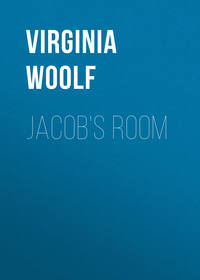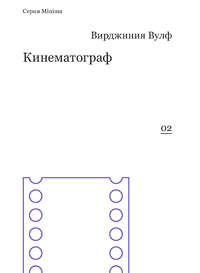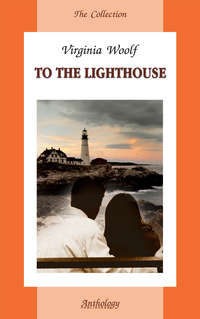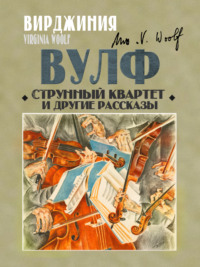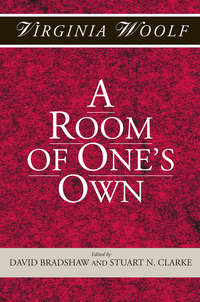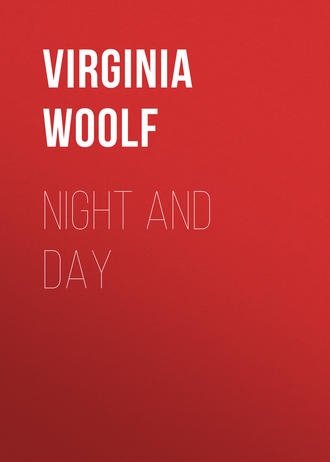 полная версия
полная версияNight and Day
“My dear Katharine,” Rodney exclaimed, “I don’t ask you for criticism, as I should ask a scholar. I dare say there are only five men in England whose opinion of my work matters a straw to me. But I trust you where feeling is concerned. I had you in my mind often when I was writing those scenes. I kept asking myself, ‘Now is this the sort of thing Katharine would like?’ I always think of you when I’m writing, Katharine, even when it’s the sort of thing you wouldn’t know about. And I’d rather – yes, I really believe I’d rather – you thought well of my writing than any one in the world.”
This was so genuine a tribute to his trust in her that Katharine was touched.
“You think too much of me altogether, William,” she said, forgetting that she had not meant to speak in this way.
“No, Katharine, I don’t,” he replied, replacing his manuscript in the drawer. “It does me good to think of you.”
So quiet an answer, followed as it was by no expression of love, but merely by the statement that if she must go he would take her to the Strand, and would, if she could wait a moment, change his dressing-gown for a coat, moved her to the warmest feeling of affection for him that she had yet experienced. While he changed in the next room, she stood by the bookcase, taking down books and opening them, but reading nothing on their pages.
She felt certain that she would marry Rodney. How could one avoid it? How could one find fault with it? Here she sighed, and, putting the thought of marriage away, fell into a dream state, in which she became another person, and the whole world seemed changed. Being a frequent visitor to that world, she could find her way there unhesitatingly. If she had tried to analyze her impressions, she would have said that there dwelt the realities of the appearances which figure in our world; so direct, powerful, and unimpeded were her sensations there, compared with those called forth in actual life. There dwelt the things one might have felt, had there been cause; the perfect happiness of which here we taste the fragment; the beauty seen here in flying glimpses only. No doubt much of the furniture of this world was drawn directly from the past, and even from the England of the Elizabethan age. However the embellishment of this imaginary world might change, two qualities were constant in it. It was a place where feelings were liberated from the constraint which the real world puts upon them; and the process of awakenment was always marked by resignation and a kind of stoical acceptance of facts. She met no acquaintance there, as Denham did, miraculously transfigured; she played no heroic part. But there certainly she loved some magnanimous hero, and as they swept together among the leaf-hung trees of an unknown world, they shared the feelings which came fresh and fast as the waves on the shore. But the sands of her liberation were running fast; even through the forest branches came sounds of Rodney moving things on his dressing-table; and Katharine woke herself from this excursion by shutting the cover of the book she was holding, and replacing it in the bookshelf.
“William,” she said, speaking rather faintly at first, like one sending a voice from sleep to reach the living. “William,” she repeated firmly, “if you still want me to marry you, I will.”
Perhaps it was that no man could expect to have the most momentous question of his life settled in a voice so level, so toneless, so devoid of joy or energy. At any rate William made no answer. She waited stoically. A moment later he stepped briskly from his dressing-room, and observed that if she wanted to buy more oysters he thought he knew where they could find a fishmonger’s shop still open. She breathed deeply a sigh of relief.
Extract from a letter sent a few days later by Mrs. Hilbery to her sister-in-law, Mrs. Milvain:
“… How stupid of me to forget the name in my telegram. Such a nice, rich, English name, too, and, in addition, he has all the graces of intellect; he has read literally EVERYTHING. I tell Katharine, I shall always put him on my right side at dinner, so as to have him by me when people begin talking about characters in Shakespeare. They won’t be rich, but they’ll be very, very happy. I was sitting in my room late one night, feeling that nothing nice would ever happen to me again, when I heard Katharine outside in the passage, and I thought to myself, ‘Shall I call her in?’ and then I thought (in that hopeless, dreary way one does think, with the fire going out and one’s birthday just over), ‘Why should I lay my troubles on HER?’ But my little self-control had its reward, for next moment she tapped at the door and came in, and sat on the rug, and though we neither of us said anything, I felt so happy all of a second that I couldn’t help crying, ‘Oh, Katharine, when you come to my age, how I hope you’ll have a daughter, too!’ You know how silent Katharine is. She was so silent, for such a long time, that in my foolish, nervous state I dreaded something, I don’t quite know what. And then she told me how, after all, she had made up her mind. She had written. She expected him to-morrow. At first I wasn’t glad at all. I didn’t want her to marry any one; but when she said, ‘It will make no difference. I shall always care for you and father most,’ then I saw how selfish I was, and I told her she must give him everything, everything, everything! I told her I should be thankful to come second. But why, when everything’s turned out just as one always hoped it would turn out, why then can one do nothing but cry, nothing but feel a desolate old woman whose life’s been a failure, and now is nearly over, and age is so cruel? But Katharine said to me, ‘I am happy. I’m very happy.’ And then I thought, though it all seemed so desperately dismal at the time, Katharine had said she was happy, and I should have a son, and it would all turn out so much more wonderfully than I could possibly imagine, for though the sermons don’t say so, I do believe the world is meant for us to be happy in. She told me that they would live quite near us, and see us every day; and she would go on with the Life, and we should finish it as we had meant to. And, after all, it would be far more horrid if she didn’t marry – or suppose she married some one we couldn’t endure? Suppose she had fallen in love with some one who was married already?
“And though one never thinks any one good enough for the people one’s fond of, he has the kindest, truest instincts, I’m sure, and though he seems nervous and his manner is not commanding, I only think these things because it’s Katharine. And now I’ve written this, it comes over me that, of course, all the time, Katharine has what he hasn’t. She does command, she isn’t nervous; it comes naturally to her to rule and control. It’s time that she should give all this to some one who will need her when we aren’t there, save in our spirits, for whatever people say, I’m sure I shall come back to this wonderful world where one’s been so happy and so miserable, where, even now, I seem to see myself stretching out my hands for another present from the great Fairy Tree whose boughs are still hung with enchanting toys, though they are rarer now, perhaps, and between the branches one sees no longer the blue sky, but the stars and the tops of the mountains.
“One doesn’t know any more, does one? One hasn’t any advice to give one’s children. One can only hope that they will have the same vision and the same power to believe, without which life would be so meaningless. That is what I ask for Katharine and her husband.”
CHAPTER XII
“Is Mr. Hilbery at home, or Mrs. Hilbery?” Denham asked, of the parlor-maid in Chelsea, a week later.
“No, sir. But Miss Hilbery is at home,” the girl answered.
Ralph had anticipated many answers, but not this one, and now it was unexpectedly made plain to him that it was the chance of seeing Katharine that had brought him all the way to Chelsea on pretence of seeing her father.
He made some show of considering the matter, and was taken upstairs to the drawing-room. As upon that first occasion, some weeks ago, the door closed as if it were a thousand doors softly excluding the world; and once more Ralph received an impression of a room full of deep shadows, firelight, unwavering silver candle flames, and empty spaces to be crossed before reaching the round table in the middle of the room, with its frail burden of silver trays and china teacups. But this time Katharine was there by herself; the volume in her hand showed that she expected no visitors.
Ralph said something about hoping to find her father.
“My father is out,” she replied. “But if you can wait, I expect him soon.”
It might have been due merely to politeness, but Ralph felt that she received him almost with cordiality. Perhaps she was bored by drinking tea and reading a book all alone; at any rate, she tossed the book on to a sofa with a gesture of relief.
“Is that one of the moderns whom you despise?” he asked, smiling at the carelessness of her gesture.
“Yes,” she replied. “I think even you would despise him.”
“Even I?” he repeated. “Why even I?”
“You said you liked modern things; I said I hated them.”
This was not a very accurate report of their conversation among the relics, perhaps, but Ralph was flattered to think that she remembered anything about it.
“Or did I confess that I hated all books?” she went on, seeing him look up with an air of inquiry. “I forget – ”
“Do you hate all books?” he asked.
“It would be absurd to say that I hate all books when I’ve only read ten, perhaps; but – ’ Here she pulled herself up short.
“Well?”
“Yes, I do hate books,” she continued. “Why do you want to be for ever talking about your feelings? That’s what I can’t make out. And poetry’s all about feelings – novels are all about feelings.”
She cut a cake vigorously into slices, and providing a tray with bread and butter for Mrs. Hilbery, who was in her room with a cold, she rose to go upstairs.
Ralph held the door open for her, and then stood with clasped hands in the middle of the room. His eyes were bright, and, indeed, he scarcely knew whether they beheld dreams or realities. All down the street and on the doorstep, and while he mounted the stairs, his dream of Katharine possessed him; on the threshold of the room he had dismissed it, in order to prevent too painful a collision between what he dreamt of her and what she was. And in five minutes she had filled the shell of the old dream with the flesh of life; looked with fire out of phantom eyes. He glanced about him with bewilderment at finding himself among her chairs and tables; they were solid, for he grasped the back of the chair in which Katharine had sat; and yet they were unreal; the atmosphere was that of a dream. He summoned all the faculties of his spirit to seize what the minutes had to give him; and from the depths of his mind there rose unchecked a joyful recognition of the truth that human nature surpasses, in its beauty, all that our wildest dreams bring us hints of.
Katharine came into the room a moment later. He stood watching her come towards him, and thought her more beautiful and strange than his dream of her; for the real Katharine could speak the words which seemed to crowd behind the forehead and in the depths of the eyes, and the commonest sentence would be flashed on by this immortal light. And she overflowed the edges of the dream; he remarked that her softness was like that of some vast snowy owl; she wore a ruby on her finger.
“My mother wants me to tell you,” she said, “that she hopes you have begun your poem. She says every one ought to write poetry… All my relations write poetry,” she went on. “I can’t bear to think of it sometimes – because, of course, it’s none of it any good. But then one needn’t read it – ”
“You don’t encourage me to write a poem,” said Ralph.
“But you’re not a poet, too, are you?” she inquired, turning upon him with a laugh.
“Should I tell you if I were?”
“Yes. Because I think you speak the truth,” she said, searching him for proof of this apparently, with eyes now almost impersonally direct. It would be easy, Ralph thought, to worship one so far removed, and yet of so straight a nature; easy to submit recklessly to her, without thought of future pain.
“Are you a poet?” she demanded. He felt that her question had an unexplained weight of meaning behind it, as if she sought an answer to a question that she did not ask.
“No. I haven’t written any poetry for years,” he replied. “But all the same, I don’t agree with you. I think it’s the only thing worth doing.”
“Why do you say that?” she asked, almost with impatience, tapping her spoon two or three times against the side of her cup.
“Why?” Ralph laid hands on the first words that came to mind. “Because, I suppose, it keeps an ideal alive which might die otherwise.”
A curious change came over her face, as if the flame of her mind were subdued; and she looked at him ironically and with the expression which he had called sad before, for want of a better name for it.
“I don’t know that there’s much sense in having ideals,” she said.
“But you have them,” he replied energetically. “Why do we call them ideals? It’s a stupid word. Dreams, I mean – ”
She followed his words with parted lips, as though to answer eagerly when he had done; but as he said, “Dreams, I mean,” the door of the drawing-room swung open, and so remained for a perceptible instant. They both held themselves silent, her lips still parted.
Far off, they heard the rustle of skirts. Then the owner of the skirts appeared in the doorway, which she almost filled, nearly concealing the figure of a very much smaller lady who accompanied her.
“My aunts!” Katharine murmured, under her breath. Her tone had a hint of tragedy in it, but no less, Ralph thought, than the situation required. She addressed the larger lady as Aunt Millicent; the smaller was Aunt Celia, Mrs. Milvain, who had lately undertaken the task of marrying Cyril to his wife. Both ladies, but Mrs. Cosham (Aunt Millicent) in particular, had that look of heightened, smoothed, incarnadined existence which is proper to elderly ladies paying calls in London about five o’clock in the afternoon. Portraits by Romney, seen through glass, have something of their pink, mellow look, their blooming softness, as of apricots hanging upon a red wall in the afternoon sun. Mrs. Cosham was so appareled with hanging muffs, chains, and swinging draperies that it was impossible to detect the shape of a human being in the mass of brown and black which filled the arm-chair. Mrs. Milvain was a much slighter figure; but the same doubt as to the precise lines of her contour filled Ralph, as he regarded them, with dismal foreboding. What remark of his would ever reach these fabulous and fantastic characters? – for there was something fantastically unreal in the curious swayings and noddings of Mrs. Cosham, as if her equipment included a large wire spring. Her voice had a high-pitched, cooing note, which prolonged words and cut them short until the English language seemed no longer fit for common purposes. In a moment of nervousness, so Ralph thought, Katharine had turned on innumerable electric lights. But Mrs. Cosham had gained impetus (perhaps her swaying movements had that end in view) for sustained speech; and she now addressed Ralph deliberately and elaborately.
“I come from Woking, Mr. Popham. You may well ask me, why Woking? and to that I answer, for perhaps the hundredth time, because of the sunsets. We went there for the sunsets, but that was five-and-twenty years ago. Where are the sunsets now? Alas! There is no sunset now nearer than the South Coast.” Her rich and romantic notes were accompanied by a wave of a long white hand, which, when waved, gave off a flash of diamonds, rubies, and emeralds. Ralph wondered whether she more resembled an elephant, with a jeweled head-dress, or a superb cockatoo, balanced insecurely upon its perch, and pecking capriciously at a lump of sugar.
“Where are the sunsets now?” she repeated. “Do you find sunsets now, Mr. Popham?”
“I live at Highgate,” he replied.
“At Highgate? Yes, Highgate has its charms; your Uncle John lived at Highgate,” she jerked in the direction of Katharine. She sank her head upon her breast, as if for a moment’s meditation, which past, she looked up and observed: “I dare say there are very pretty lanes in Highgate. I can recollect walking with your mother, Katharine, through lanes blossoming with wild hawthorn. But where is the hawthorn now? You remember that exquisite description in De Quincey, Mr. Popham? – but I forget, you, in your generation, with all your activity and enlightenment, at which I can only marvel” – here she displayed both her beautiful white hands – “do not read De Quincey. You have your Belloc, your Chesterton, your Bernard Shaw – why should you read De Quincey?”
“But I do read De Quincey,” Ralph protested, “more than Belloc and Chesterton, anyhow.”
“Indeed!” exclaimed Mrs. Cosham, with a gesture of surprise and relief mingled. “You are, then, a ‘rara avis’ in your generation. I am delighted to meet anyone who reads De Quincey.”
Here she hollowed her hand into a screen, and, leaning towards Katharine, inquired, in a very audible whisper, “Does your friend WRITE?”
“Mr. Denham,” said Katharine, with more than her usual clearness and firmness, “writes for the Review. He is a lawyer.”
“The clean-shaven lips, showing the expression of the mouth! I recognize them at once. I always feel at home with lawyers, Mr. Denham – ”
“They used to come about so much in the old days,” Mrs. Milvain interposed, the frail, silvery notes of her voice falling with the sweet tone of an old bell.
“You say you live at Highgate,” she continued. “I wonder whether you happen to know if there is an old house called Tempest Lodge still in existence – an old white house in a garden?”
Ralph shook his head, and she sighed.
“Ah, no; it must have been pulled down by this time, with all the other old houses. There were such pretty lanes in those days. That was how your uncle met your Aunt Emily, you know,” she addressed Katharine. “They walked home through the lanes.”
“A sprig of May in her bonnet,” Mrs. Cosham ejaculated, reminiscently.
“And next Sunday he had violets in his buttonhole. And that was how we guessed.”
Katharine laughed. She looked at Ralph. His eyes were meditative, and she wondered what he found in this old gossip to make him ponder so contentedly. She felt, she hardly knew why, a curious pity for him.
“Uncle John – yes, ‘poor John,’ you always called him. Why was that?” she asked, to make them go on talking, which, indeed, they needed little invitation to do.
“That was what his father, old Sir Richard, always called him. Poor John, or the fool of the family,” Mrs. Milvain hastened to inform them. “The other boys were so brilliant, and he could never pass his examinations, so they sent him to India – a long voyage in those days, poor fellow. You had your own room, you know, and you did it up. But he will get his knighthood and a pension, I believe,” she said, turning to Ralph, “only it is not England.”
“No,” Mrs. Cosham confirmed her, “it is not England. In those days we thought an Indian Judgeship about equal to a county-court judgeship at home. His Honor – a pretty title, but still, not at the top of the tree. However,” she sighed, “if you have a wife and seven children, and people nowadays very quickly forget your father’s name – well, you have to take what you can get,” she concluded.
“And I fancy,” Mrs. Milvain resumed, lowering her voice rather confidentially, “that John would have done more if it hadn’t been for his wife, your Aunt Emily. She was a very good woman, devoted to him, of course, but she was not ambitious for him, and if a wife isn’t ambitious for her husband, especially in a profession like the law, clients soon get to know of it. In our young days, Mr. Denham, we used to say that we knew which of our friends would become judges, by looking at the girls they married. And so it was, and so, I fancy, it always will be. I don’t think,” she added, summing up these scattered remarks, “that any man is really happy unless he succeeds in his profession.”
Mrs. Cosham approved of this sentiment with more ponderous sagacity from her side of the tea-table, in the first place by swaying her head, and in the second by remarking:
“No, men are not the same as women. I fancy Alfred Tennyson spoke the truth about that as about many other things. How I wish he’d lived to write ‘The Prince’ – a sequel to ‘The Princess’! I confess I’m almost tired of Princesses. We want some one to show us what a good man can be. We have Laura and Beatrice, Antigone and Cordelia, but we have no heroic man. How do you, as a poet, account for that, Mr. Denham?”
“I’m not a poet,” said Ralph good-humoredly. “I’m only a solicitor.”
“But you write, too?” Mrs. Cosham demanded, afraid lest she should be balked of her priceless discovery, a young man truly devoted to literature.
“In my spare time,” Denham reassured her.
“In your spare time!” Mrs. Cosham echoed. “That is a proof of devotion, indeed.” She half closed her eyes, and indulged herself in a fascinating picture of a briefless barrister lodged in a garret, writing immortal novels by the light of a farthing dip. But the romance which fell upon the figures of great writers and illumined their pages was no false radiance in her case. She carried her pocket Shakespeare about with her, and met life fortified by the words of the poets. How far she saw Denham, and how far she confused him with some hero of fiction, it would be hard to say. Literature had taken possession even of her memories. She was matching him, presumably, with certain characters in the old novels, for she came out, after a pause, with:
“Um – um – Pendennis – Warrington – I could never forgive Laura,” she pronounced energetically, “for not marrying George, in spite of everything. George Eliot did the very same thing; and Lewes was a little frog-faced man, with the manner of a dancing master. But Warrington, now, had everything in his favor; intellect, passion, romance, distinction, and the connection was a mere piece of undergraduate folly. Arthur, I confess, has always seemed to me a bit of a fop; I can’t imagine how Laura married him. But you say you’re a solicitor, Mr. Denham. Now there are one or two things I should like to ask you – about Shakespeare – ” She drew out her small, worn volume with some difficulty, opened it, and shook it in the air. “They say, nowadays, that Shakespeare was a lawyer. They say, that accounts for his knowledge of human nature. There’s a fine example for you, Mr. Denham. Study your clients, young man, and the world will be the richer one of these days, I have no doubt. Tell me, how do we come out of it, now; better or worse than you expected?”
Thus called upon to sum up the worth of human nature in a few words, Ralph answered unhesitatingly:
“Worse, Mrs. Cosham, a good deal worse. I’m afraid the ordinary man is a bit of a rascal – ”
“And the ordinary woman?”
“No, I don’t like the ordinary woman either – ”
“Ah, dear me, I’ve no doubt that’s very true, very true.” Mrs. Cosham sighed. “Swift would have agreed with you, anyhow – ” She looked at him, and thought that there were signs of distinct power in his brow. He would do well, she thought, to devote himself to satire.
“Charles Lavington, you remember, was a solicitor,” Mrs. Milvain interposed, rather resenting the waste of time involved in talking about fictitious people when you might be talking about real people. “But you wouldn’t remember him, Katharine.”
“Mr. Lavington? Oh, yes, I do,” said Katharine, waking from other thoughts with her little start. “The summer we had a house near Tenby. I remember the field and the pond with the tadpoles, and making haystacks with Mr. Lavington.”
“She is right. There WAS a pond with tadpoles,” Mrs. Cosham corroborated. “Millais made studies of it for ‘Ophelia.’ Some say that is the best picture he ever painted – ”
“And I remember the dog chained up in the yard, and the dead snakes hanging in the toolhouse.”
“It was at Tenby that you were chased by the bull,” Mrs. Milvain continued. “But that you couldn’t remember, though it’s true you were a wonderful child. Such eyes she had, Mr. Denham! I used to say to her father, ‘She’s watching us, and summing us all up in her little mind.’ And they had a nurse in those days,” she went on, telling her story with charming solemnity to Ralph, “who was a good woman, but engaged to a sailor. When she ought to have been attending to the baby, her eyes were on the sea. And Mrs. Hilbery allowed this girl – Susan her name was – to have him to stay in the village. They abused her goodness, I’m sorry to say, and while they walked in the lanes, they stood the perambulator alone in a field where there was a bull. The animal became enraged by the red blanket in the perambulator, and Heaven knows what might have happened if a gentleman had not been walking by in the nick of time, and rescued Katharine in his arms!”


